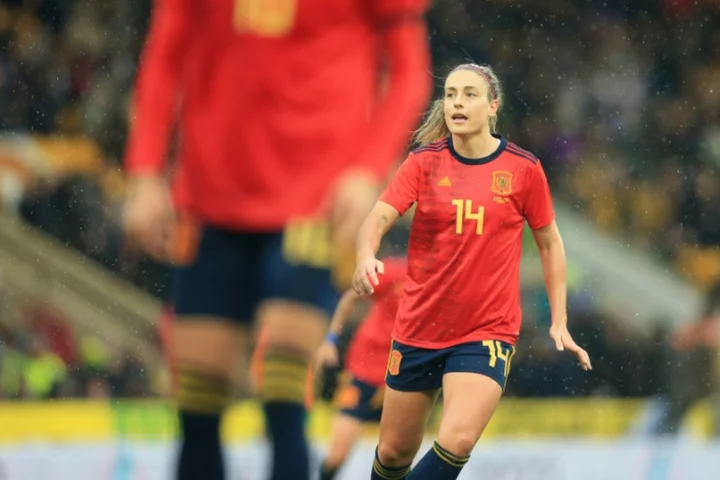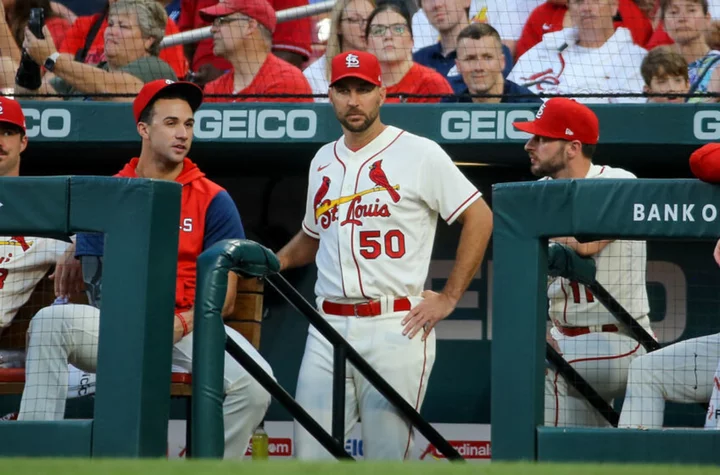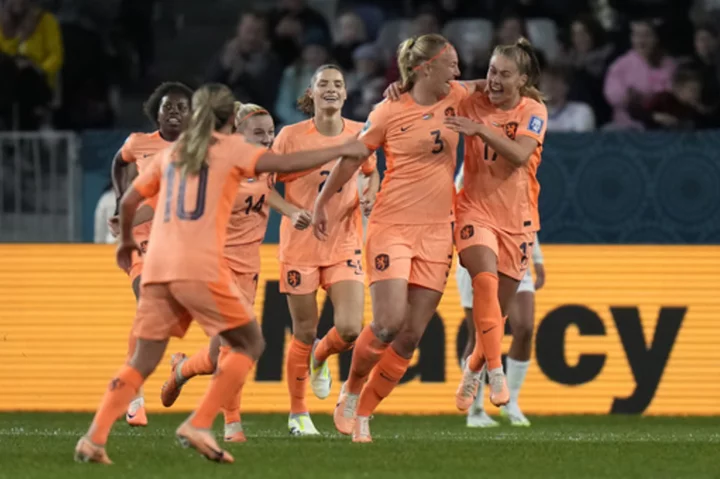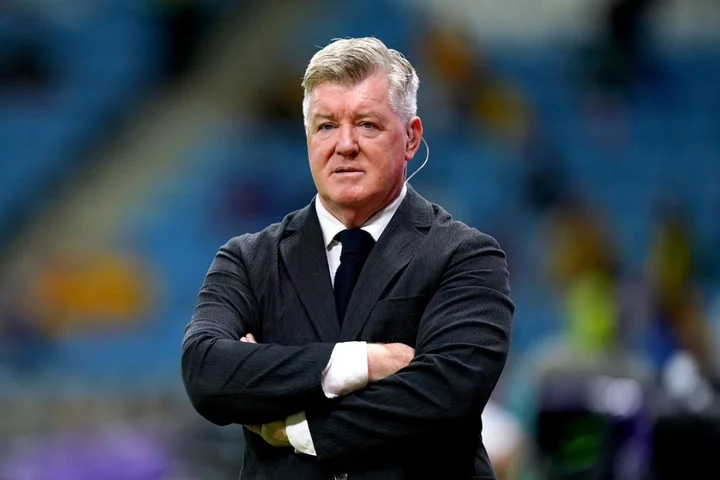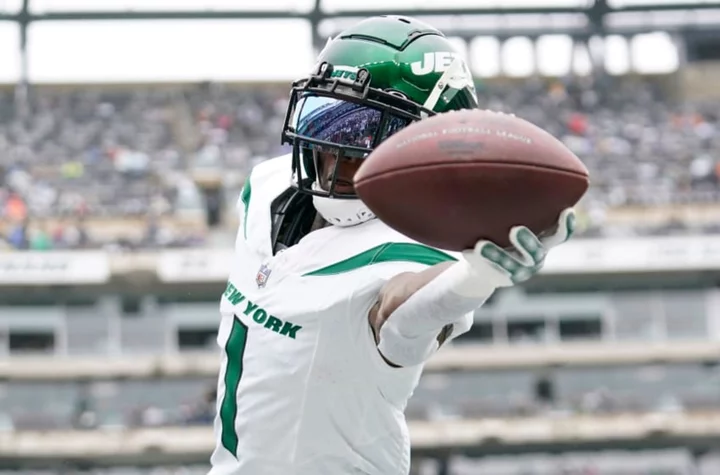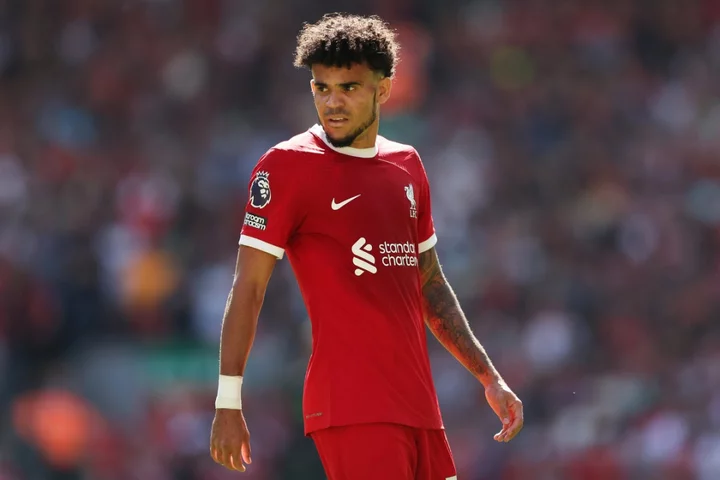Numerous top players will miss the Women's World Cup because of serious knee injuries, provoking soul-searching and calls for more research into what is behind the scourge.
Alexia Putellas has recovered from rupturing the anterior cruciate ligament in her left knee but a host of other leading names will be absent when the tournament in Australia and New Zealand starts on Thursday.
Spain's Putellas, the Women's Ballon d'Or and The Best FIFA Women's Player winner, missed last year's European Championship in England and spent more than nine months out.
The attacking midfielder returned in April, just in time for the World Cup, but is one of the lucky ones.
Holders the United States are diminished by the loss of Mallory Swanson to a torn patella tendon in her left knee, while midfielder Catarina Macario did not overcome a torn ACL in time.
European champions England are without star striker Beth Mead and defender Leah Williamson, their captain, as both recover from ruptured ACLs.
Vivianne Miedema, the prolific Netherlands striker, and the star French duo of Delphine Cascarino and Marie-Antoinette Katoto also suffered World Cup heartache because of serious knee injuries.
Christen Press is another who misses out and is set for a fourth operation on an ACL injury she suffered just over a year ago.
"Having gone through an ACL tear and recovery (myself), that in itself is hard enough," her United States team-mate Andi Sullivan said on Tuesday.
"I'm crushed for her."
Janine Beckie, the ex-Manchester City player from Olympic champions Canada, is another major absentee after she tore her ACL.
- 'Seriously higher risk' -
Speaking to global players' union FIFPro, the 29-year-old Putellas said the sheer number of knee problems, especially ACL injuries, in women's football was down to "many things".
"It is only relatively recent that women's players have started to become professionals and there has hardly been time to carry out these types of studies and learn a little more about the body of women's footballers," she said.
Women players have not just suddenly become vulnerable to knee injuries that can rule them out for many months and even put their careers in jeopardy.
"The fact that females are at seriously higher risk than guys playing football has been recognised for a long time," Gordon Mackay, a Scottish knee surgeon, told AFP.
"It is multi-factorial, but there are lots of things that contribute to the risk factors," he said, citing the need to train on the right surfaces and have footwear geared specifically for women.
Mackay put the incidence of ACL injuries in women players at "four times at least, maybe six times" that of men and says pelvic shape is a contributing factor.
Hormonal changes related to the menstrual cycle have been mentioned, too, as potentially increasing the risk.
"It is very hard to address the fact there is biomechanically a bit of a gender difference," Mackay said.
One recent study by researchers in England suggested that kits and balls, as well as boots, needed to be better-tailored towards women to optimise on-pitch safety.
Sportswear giant Adidas, one of the main kit providers for teams at the World Cup, said it takes the issue "incredibly seriously".
"We have a long-standing legacy in designing products by, with and for women athletes," it said when contacted by AFP.
- 'Lack of research' -
The head of women's football for World Cup co-hosts Australia said there needed to be more research into all the ACL injuries.
Football Australia's Sarah Walsh blamed a "hundred years of underinvestment" in research.
"For a long time, women have been treated like little men," Walsh, who suffered serious knee injuries during her own playing career, told the BBC.
"There is a real lack of research. The entire high-performance environment is built around men, designed by men for men."
The World Cup in Australia and New Zealand will be the first to feature 32 teams as the sport continues to grow, but it is a shame such a huge month for women's football will go ahead without so many big names.
That could ultimately hurt the sport.
"Not consistently having the best players on the pitch, particularly during the biggest moments the sport has to offer, affects our game's ability to continuously leverage its growing popularity," said Alex Culvin, a former player and now FIFPro's head of strategy and research.
as-pst/pbt

